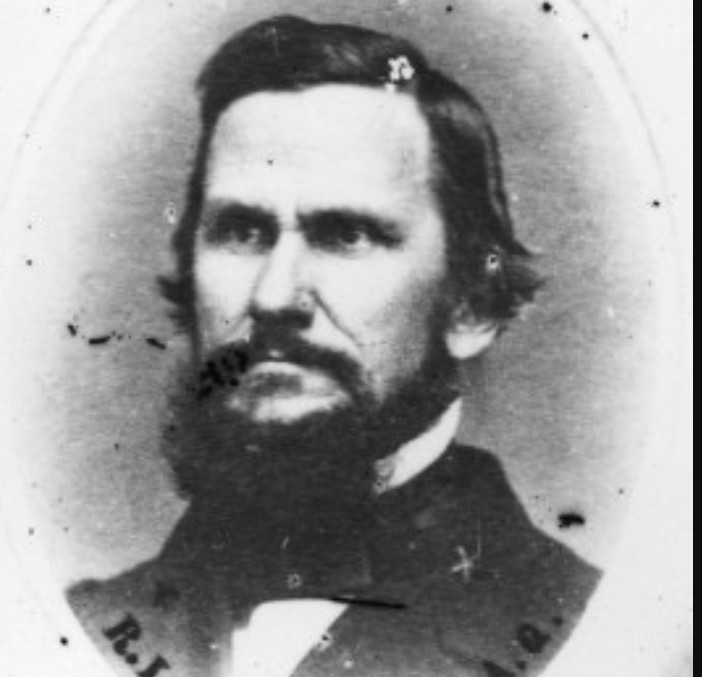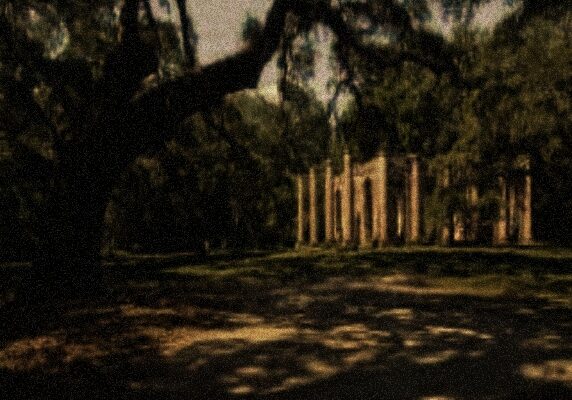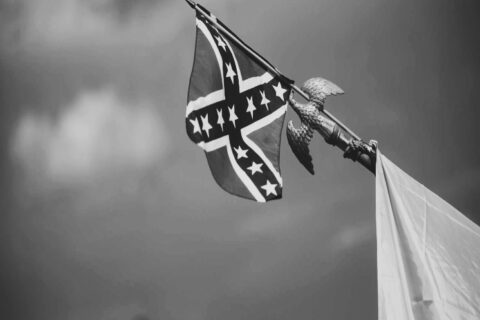After his encounter with the Keeper of the Fire, on that cold October night, when that grey clad spector passed his torch to Gideon, Gideon’s thoughts became as tangled as a rubber band ball. In hindsight, that was exactly the way it should have been, with each rubber band representing part of a greater strategy to ignite the hearts of his people in an all consuming passion towards sovereignty. But the challenge, just as in untangling that ball, was determining where to start, which tug and pull would have the greatest impact.
It had been over a month, Thanksgiving had passed, Christmas and New Year’s Day were quickly approaching. Southerners would be spending much time with friends, family, and relations of every kind. They would be enjoying each other’s company over food, drink, football, and celebrations in their churches. That was the time and those were places to strike first.
Even for the most wayward of souls, church gatherings are the most impactful, for they are where we reconnect with those that have gone before us. What grandson doesn’t want to make his grandma happy this time of year, even if it means going to church services he has not attended since last Christmas? And who better to spark the fire in that man’s heart than those that wear the black robes. Holy men committed to fulfilling “thy kingdom come, thy will be done, on Earth as it is in heaven,” and making Dixie a permanent divine outpost.
Those that wear black robes are the most fraternal, most connected men in the South. They have connections that ride the tide of dispensations, from the oldest congregant to the freshly baptized infant, and have an impact over a vast diversity of backgrounds. The well-connected Southern pastor has networks deep inside the seminaries, local politics, and the business communities in which they minister. If they could be turned homeward, towards their own people, to disciple their nation, and be less telescopic in their mission, then perhaps the South had a chance.
Gideon was determined to spread the fire in which he had been entrusted, to as many sympathetic clergymen as he could.
He had strong and deep connections within that fraternal network, and though he only briefly wore the robe, he had maintained his connections by the providence of God, for this very moment, for such a time as this. With determined focus he moved to exploit his old connections in Virginia, Florida, Tennessee, Texas, and, of course, his beloved South Carolina. They were all Southern men, all good and godly, but without exception had been pacified into passivity, and to radicalize them would be a challenge.
His first focus were his Anglican relationships deep in the Low Country, and a particular bishop whose familial connections went back to the colonial days. One call set up the meeting that would take both to a place of sobriety, hallowed ground that evoked the patriotic fire inside every true South Carolinian, Old Sheldon Church. Burned by two oppressors of our people, the British during our War of Independence, and by the godless Sherman in our second. Gideon had no doubt this was the place to call his brother into the cause.
It was December 20th, Secession Day in South Carolina, the air was crisp, it was a lovely day. As the two men met, their first concerns were regarding the wellbeing of each other’s families. The last time they had seen each other was at the passing of the bishop’s father, a man Gideon had deeply admired, and who had been a second father to him after the passing of his own. They walked among the ruins, the graves, and remembered the beauty that had been built by their people, how it had been destroyed, rebuilt, and destroyed again. They both looked on in a certain sadness at the burned-out church and the bishop lamented, as it was analogous to the present state of so many congregations, so many communities – hollow shells of what used to be beautiful and vibrant.
The bishop looked at the ruins of the church again, and lowly began humming the tune to “We Marvel at Your Wondrous Word,” and then softly singing the words. Coming to the stanza “rebuild our ruins, restore our race” his voice cracked, and his eyes watered. He was remembering a conversation he had with Gideon’s wife. She had unintentionally, but gently, shamed him, asking if there were any Southern men willingly to fight for her children, not just her husband. He heard the sorrow in her voice, and saw the pain she felt for her husband, whom she seemed to think was almost alone. The bishop grabbed Gideon in brotherly embrace, and they wept together, it was a spiritual moment that needed no words of explanation.
Afterwards, the men sat down on a nearby bench and Gideon turned the conversation to the immediate. With the rise in conversations about Christian Nationalism, the disappointment over multiple elections, and the inquisition of good men over their love for the Church and their people by false brothers, both agreed there was no time to waste. The bishop would reach out to those brothers who he knew already leaned towards the cause, and he would exhort them to activity, for he knew in his heart complacency would win no victory.
Gideon moved to elicit other ministers in their circle of friends throughout all the various parts of the South. By the time of the first Lord’s Day of the new year, there was a deliberate strategy to collaborate and coordinate sermons and liturgy among all the congregations these men ministered: a lectionary focused on a Southern compliance to Christian repentance, revival, and a restoration of a sovereign Christ honoring nation in Dixie.
An uprising was occurring among those that wore the black robes, and the more they succeeded, the greater the fire spread.
Deo Vindice!
God save the South!

Service to God and honor to the South.






Very good, sir. Your article put me in mind of relevant passages from Mr. Jefferson’s autobiography, so I pulled it off the shelf to find the passages. Luckily I remembered about where to find them in the book, and I had long-since highlighted the passages in question, which helped a lot in finding them too. Here are the passages to which I refer:
-Jefferson’s autobiography, pgs. 7-9 (bold and paragraph breaks, mine)
That’s fantastic! Thanks for this additional insight.
Is there a bishop or even priest in The Anglican Diocese of South Carolina like this? I certainly haven’t found one. Beautiful churches and liturgies, but unfortunately culturally progressive in nearly all aspects in my experience. Regardless of the state of the South Carolina Anglican Church, beautiful imagery in your writing and very inspiring.
Well, thank you.
All of the details of this story are fictitious…..maybe😉